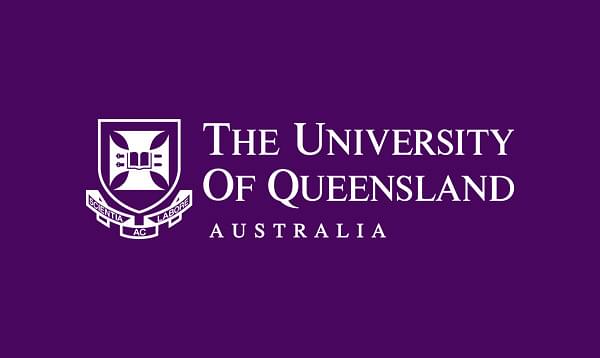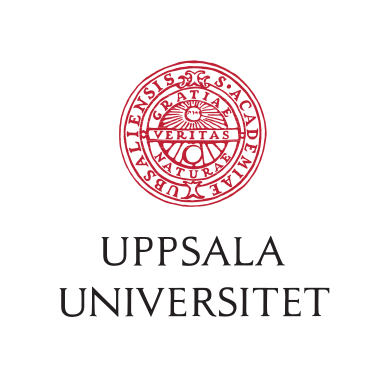What is the Rotary Peace Fellowship?
The Rotary Peace Fellowship is a prestigious, fully funded program sponsored by The Rotary Foundation, designed to empower emerging leaders in peace and conflict resolution. Launched in 2002, it has trained over 1,800 fellows from more than 140 countries, equipping them with the skills to address global challenges like ethnic conflicts, refugee crises, and social inequalities. For Indian students aspiring to study abroad, this fellowship offers a unique opportunity to pursue advanced studies at world-renowned universities while contributing to peacebuilding efforts—particularly relevant in a diverse nation like India, where issues such as communal harmony and regional stability are paramount.
The program provides two tracks: a 15- to 24-month Master's degree in international relations, sustainable development, or peace studies, and a 12-month Professional Development Certificate for mid-career professionals. Both emphasize practical training, including field studies and internships, making it ideal for Indian graduates or young professionals seeking to make a global impact upon returning home.
Why This Fellowship is Perfect for Indian Students
India's rich tapestry of cultures and histories presents both opportunities and challenges for peace advocates. The Rotary Peace Fellowship aligns seamlessly with these, fostering cross-cultural understanding and leadership skills that can be applied to South Asian contexts, from Kashmir's border dynamics to community reconciliation in urban slums. As an Indian applicant, you'll join a global network backed by Rotary's strong presence in India—over 2,000 clubs nationwide—providing local mentorship and endorsement crucial for selection.
With tuition-free education abroad, this fellowship removes financial barriers, allowing you to focus on academics and fieldwork. Graduates often return to roles in NGOs, government, or international organizations, enhancing India's diplomatic footprint in global peace initiatives.
Eligibility Criteria
To qualify for the Rotary Peace Fellowship, candidates must meet specific requirements tailored for early- to mid-career professionals. Here's a breakdown:
- Bachelor's Degree: Hold a bachelor's degree (or equivalent) with a strong academic record, ideally a GPA of 3.0 or higher on a 4.0 scale.
- Work Experience: At least three years of full-time paid or volunteer work in peacebuilding, conflict resolution, international development, or related fields. For Master's applicants, this experience must be post-graduation.
- Language Proficiency: Excellent command of English; proficiency in a second language (e.g., Hindi, Tamil, or regional languages for Indian applicants) is highly advantageous for cross-cultural work.
- Commitment to Peace: Demonstrated dedication through professional, academic, or volunteer activities promoting international understanding and peace.
- Age and Status: Open to all nationalities, including Indians; no upper age limit, but aimed at emerging leaders (typically under 40). Not currently enrolled in another degree program.
Indian applicants from diverse backgrounds—such as social workers in rural development or journalists covering conflict zones—are particularly encouraged, as the program values real-world impact over elite credentials.
Key Benefits of the Fellowship
The Rotary Peace Fellowship is renowned for its comprehensive support, ensuring fellows can immerse fully in their studies without financial worries. Benefits include:
- Full Tuition and Fees: Coverage for all academic costs at partner universities.
- Living Expenses: Room and board, plus a monthly stipend to cover daily needs.
- Travel Support: Round-trip airfare from India to the host country.
- Practical Experience: Funding for a 2-3 month internship or field study, which you design to align with your goals—perfect for exploring peace initiatives in Europe, Asia, or the US.
- Networking and Alumni Access: Lifetime membership in the Rotary global alumni network, opening doors to UN placements, NGO roles, and leadership positions back in India.
For Indian students, these perks translate to a debt-free abroad experience, with stipends adjusted for international living costs (e.g., £1,200/month in the UK or $1,500 in the US), plus health insurance and visa assistance.
Partner Universities and Programs
The fellowship partners with seven premier institutions worldwide, each offering specialized curricula in peace and conflict studies. Choose based on your interests—Asia-focused programs may appeal to Indian applicants for regional relevance.
| University | Location | Program Type | Duration | Focus Areas |
|---|---|---|---|---|
| Chulalongkorn University | Bangkok, Thailand | Master's | 21 months | International Relations, Peace and Conflict Studies |
| Duke University & University of North Carolina | Durham/Raleigh, USA | Master's | 18 months | Development Practice, Conflict Prevention |
| University of Bradford | Bradford, UK | Master's | 15 months | Peace Studies, Conflict Resolution |
| International Christian University | Tokyo, Japan | Master's | 24 months | Peace and Conflict Resolution, Gender and Peace |
| University of Queensland | Brisbane, Australia | Master's | 20 months | Peace, Security, and Sustainable Development |
| Makerere University | Kampala, Uganda | Certificate | 3 months on-site + 9 months online | Peacebuilding, Refugee Studies |
| Bahçeşehir University | Istanbul, Turkey | Certificate | 11 weeks on-site + online | Conflict Analysis, Mediation |
These locations offer vibrant international communities, with scholarships easing visa processes for Indian passport holders. Proximity to India (e.g., Thailand or Australia) minimizes travel costs and culture shock.
Application Process: Step-by-Step Guide
Applying for the 2027-28 intake requires preparation starting now. The process is competitive, with only 130 spots annually, but Indian applicants can leverage local Rotary support.
- Research and Self-Assess (November 2025 - January 2026): Review eligibility and choose your program/university. Connect with your nearest Rotary club via rotary.org for guidance.
- Gather Documents (January - February 2026): Prepare transcripts, resume, two essays (on peace commitment and career goals), three recommendations, and proof of language proficiency (TOEFL/IELTS if needed).
- Submit Online Application (February - May 2026): Applications open February 2026 at my.rotary.org. Deadline: May 15, 2026. Get endorsed by your local Rotary district—essential for Indian applicants.
- District Endorsement (March - April 2026): Interview with district representatives; highlight India-specific experiences like community service in disaster relief.
- Foundation Review and Selection (June - August 2026): Shortlisted candidates attend global interviews. Notifications by September 2026.
- Pre-Departure (September 2026 - August 2027): Visa support and orientation. Programs start August/September 2027.
Fee: None—fully free to apply.
Tips for Indian Students to Strengthen Your Application
Standing out requires authenticity and Rotary alignment. Here are tailored strategies:
- Engage Locally: Attend Rotary events in your city (e.g., Mumbai or Delhi clubs) to build relationships—endorsements from known members boost chances.
- Highlight India-Relevant Work: In essays, link experiences like NGO volunteering in Manipur conflicts or women's empowerment projects to global peace themes. Use strong, specific examples over general statements.
- Craft Impactful Essays: Limit to 500 words each; focus on leadership stories and post-fellowship plans, like advocating for SDGs in India.
- Secure Stellar Recommendations: Choose mentors from Rotary, academia, or NGOs who can vouch for your cross-cultural skills.
- Prepare for Interviews: Practice discussing ethical dilemmas in peace work; emphasize India's role in UN peacekeeping.
- Language Edge: If bilingual, showcase how Hindi or regional languages aid mediation in diverse settings.
Avoid common pitfalls: Don't exaggerate experience or ignore the district endorsement—it's non-negotiable.
Timeline for the 2027-28 Intake
Mark these dates to stay ahead:
- November 2025 - January 2026: Research and connect with Rotary.
- February 2026: Applications open.
- May 15, 2026: Final submission deadline.
- June - August 2026: Interviews and selection.
- September 2026: Award notifications.
- August 2027: Programs begin.
With applications closing in just six months from now, start networking today!
Conclusion: Your Path to Global Peace Starts Here
The Rotary Peace Fellowship isn't just a scholarship—it's a launchpad for Indian leaders to drive sustainable change worldwide. By blending rigorous academics with hands-on peacebuilding, it equips you to tackle pressing issues from Delhi to Durban. If you're passionate about fostering harmony in an interconnected world, this is your chance. Visit the official site, reach out to a local club, and take the first step toward an abroad education that echoes back home.




